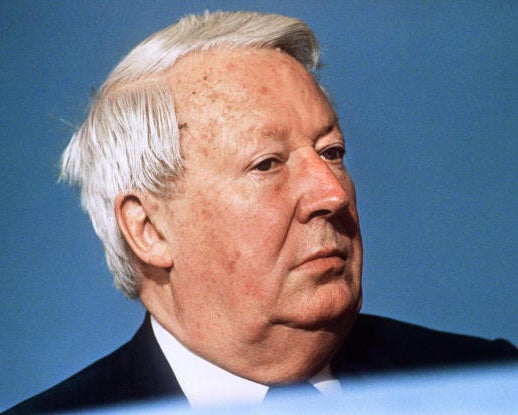Ted Heath: If a PM can be an alleged child abuser, who is left in a position of power to trust?
Britain's ability to cover things up is world-class


The most powerful person in the land accused of the most abhorrent of crimes. It does not get much more serious, or the stakes much higher, than the allegations of paedophilia against former Conservative prime minister Sir Edward Heath.
It is difficult to tell whether the case against Heath, who is no longer around to defend himself, is threadbare or not. The original allegation, made back in the 1990s, came from a woman who was not an alleged victim, but made broad claims about the former PM abusing others. The Labour MP Tom Watson, who in 2012 told the House of Commons he had uncovered allegations of a paedophile network linked to No10, at the time passed on two allegations of abuse by Heath to the Metropolitan Police. In turn the Met supposedly found no evidence of wrongdoing. So does this mean Heath was innocent?
On the other hand, the Daily Mirror yesterday ran detailed allegations by a 65-year-old man who claims he was abused by Heath when he was 12 in 1961. Does this make him guilty?
It is impossible for journalists like me, or for keyboard commentators who litter social media with assertions that this politician or that celebrity is guilty, to know the truth. But we do now know that allegations about the former prime minister came to the attention of police much earlier. And when the unidentified woman made the claims about Heath and threatened to air them in court if (unrelated) criminal charges were brought against her, the case was later dropped.
Cover-ups seem to be as commonplace in the police service as overtime and paperwork. We now know, after Hillsborough and Savile, that the ability of this country’s authorities to cover things up in the most organised way is world-class. How many more attempts to conceal allegations of abuse, involving other powerful figures, are yet to come to light? Why did the Met decide not to proceed with an investigation about the Heath allegations passed on by Watson in 2012 – was it because there was little evidence, or was this yet another attempt to conceal the truth because the individual involved was too powerful?
Indeed, it would be wrong to look back at the 1990s and further back in time, when authorities covered up allegations about Hillsborough and Savile, and think the collective desire of the Establishment to protect itself is a relic of history. When Alison Saunders, the director of public prosecutions, decided not to proceed with a case involving abuse allegations about Lord Janner, she left the deeply uneasy impression that the Establishment would rather close in on itself than air the truth.
It is not only with cases of alleged abuse. The Establishment has a poor record of investigating itself for fear, apparently, of attacking the very thing that sustains it and keeps it in power. The Hutton Inquiry left critics of the Iraq War dissatisfied, and now the Chilcot Inquiry is a long-running disaster. The truth about Hillsborough only emerged when an independent, non-Establishment panel was put on the case.
It took three attempts by Theresa May to get someone sufficiently independent to investigate historic child abuse. The system has an inbuilt desire to cover itself up and it does so because it can.
In cases of child sexual abuse in local communities, such as those historic examples that have come to light involving headmasters at prep schools, individuals in those schools or communities did not speak out at the time because they were afraid to bring down a so-called pillar of society, and later, because they feared criticism for not reporting the abuse.
The same mindset applies to those who would seek to protect an ex-prime minister: it is shocking that someone so powerful would be involved in something so horrific. If an occupant of No10, the very pinnacle of society, can be an alleged child abuser, who is there left in a position of power to trust?
But this is the very reason why these allegations must be investigated properly, no matter how thin the evidence. If Heath was innocent, then his place in history can be deserved. If he was guilty, then the alleged victims need justice. The credibility of the office of prime minister is at stake.
Join our commenting forum
Join thought-provoking conversations, follow other Independent readers and see their replies
Comments
Bookmark popover
Removed from bookmarks